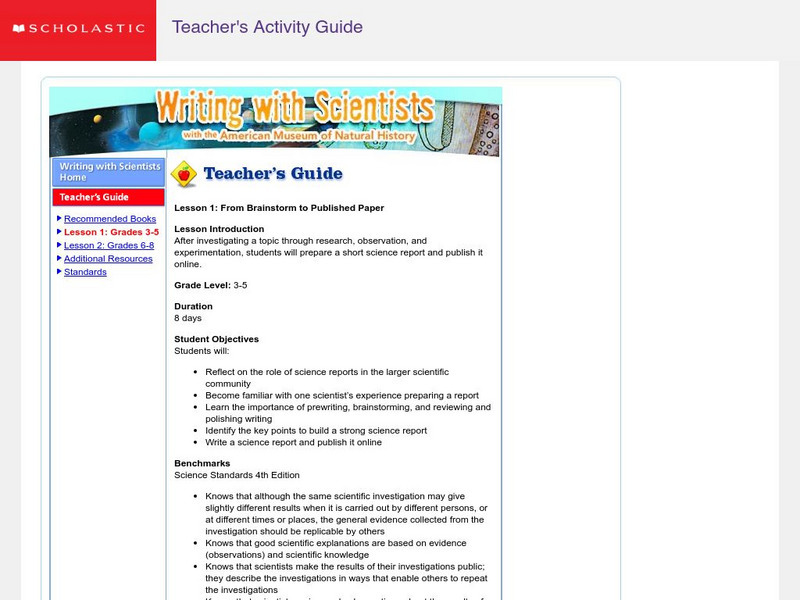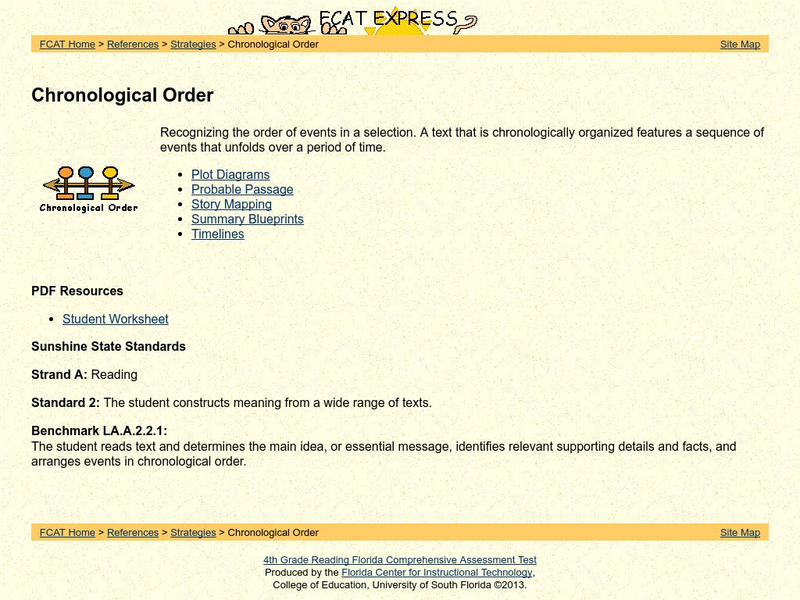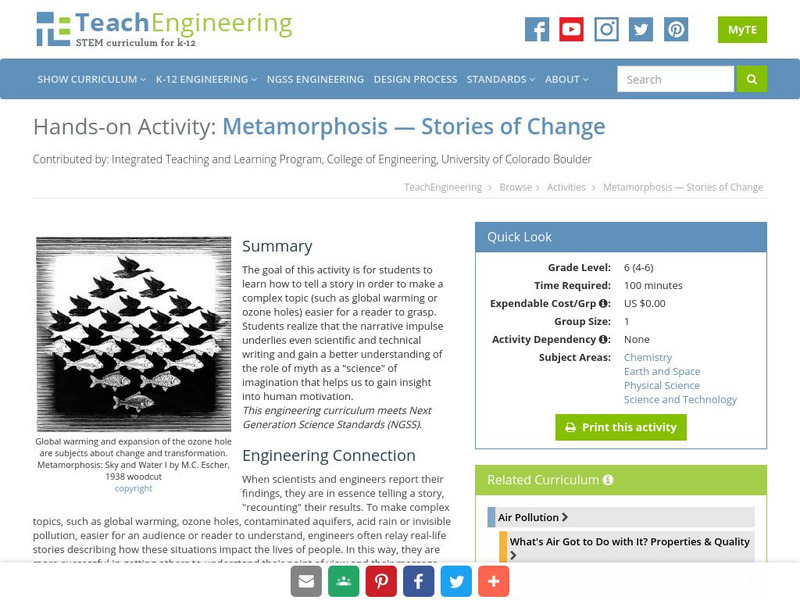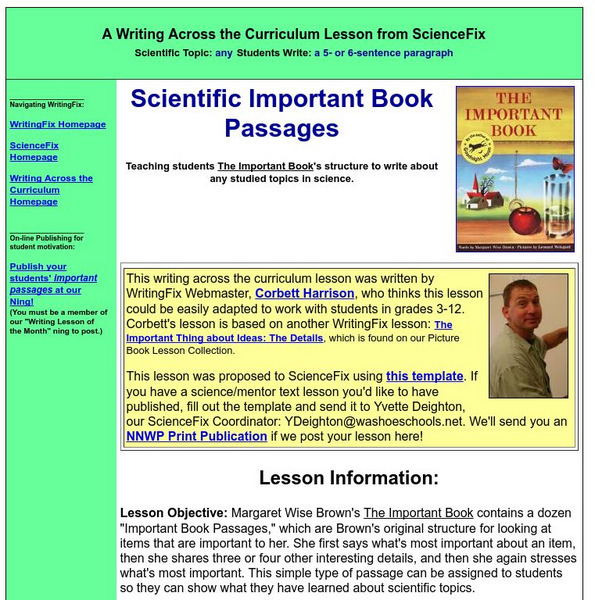American Battlefield Trust
Pre-1861: Disunion
Nat Turner, John Brown, and Abraham Lincoln all played a key role in the run-up to the bloody American Civil War. Using a PowerPoint, timeline activity, and essay prompt, young historians consider the roles of these men and more to...
Curated OER
Rocks and Minerals
Take young geologists on an exploration of the collection of rocks and minerals that we call Earth with an upper-elementary science lesson. Through a series of class discussion and hands-on investigations, students learn about the...
California Academy of Science
Guess That Spice
From medical treatments to cooking, people have been using herbs and spices for thousands of years. Perform a blind smell test of household herbs and spices to engage students in learning about ancient spice trading. Research the history...
Curated OER
My Senator and Me: A Dog's-Eye View of Washington, D.C.
Although this legislative process lesson plan is designed to accompany a specific text, it is valuable independently. Young learners participate in a picture walk (worksheet included) through My Senator and Me:...
Curated OER
The Peanut Wizard
Peanuts inspire this lesson plan about George Washington Carver, called The Peanut Wizard in the included informational text. Class members read about peanuts and George Washington Carver and create a timeline of his life. In addition,...
Curated OER
Just Lookin' For a Home
What is a boll weevil? Your class can find out that and more by following the activities included here. Pupils read an article, sing a boll weevil song, add to the song with their own original lyrics, illustrate the song, study the...
Scholastic
Scholastic: Writing With Scientists With the American Museum of Natural History
Follow this six-step method and you'll have a good understanding of what a good scientific research paper involves and how it is organized. There are plenty of samples for you to look at. This explanation is also very helpful for...
University of South Florida
Fcat Express: Plot & Conflict Resolution
Strategies to help students understand the elements of a story provided by a standardized test preparation site intended for fourth grade. Includes strategies such as DLTA/DRTA, Plot Diagrams, Story Clock, Story Mapping, Summary...
Science Buddies
Science Buddies: The Bouba Kiki Effect
It may be possible for certain symbolic characteristics, like sharpness and roundedness, to cross language barriers. In this experiment you will investigate the Bouba-Kiki Effect to find out if abstract visual properties can be linked to...
Other
Curriculum Associates: Determining Theme or Central Idea [Pdf]
In this reading comprehension instructional activity unit, students are guided in learning how to find the main theme or idea of a text and understanding how details in the text convey that. Includes lots of exercises and examples, as...
Scholastic
Scholastic: Writing With Scientists
After students investigate a topic through research, hypothesizing, observing, and experimentating, teachers can use this lesson to help their students prepare short science reports and publish them online. The Writing with Scientists...
University of South Florida
Fcat Express: Chronological Order
Strategies to help students recognize the order of events in a selection provided by a standardized test preparation site intended for fourth grade. Includes strategies such as plot diagrams, probable passages, story mapping, summary...
TeachEngineering
Teach Engineering: Metamorphosis Stories of Change
The goal of this activity is for students to learn how to tell a story in order to make a complex topic (such as global warming or ozone holes) easier for a reader to grasp. Students realize that the narrative impulse underlies even...
Utah Education Network
Uen: Introducing Text Structures in Writing 5th Grade
This lesson engages students in learning about text structures. Graphic organizers are provided to assist students in planning writings that have the following text structures: problem and solution; sequence; cause and effect; and...
Texas Education Agency
Texas Gateway: Synthesize Ideas in Informational/expository Texts
[Accessible by TX Educators. Free Registration/Login Required] Learn how to synthesize and make logical connections between ideas within a text and across two or three texts representing similar or different genres (including literary...
CPALMS
Florida State University Cpalms: Florida Students: Integrating Information: A Titanic Challenge
Read about the sinking of the Titanic and learn to identify key ideas in multiple texts, review similarities and differences between those key ideas, and identify the difference between important and interesting key ideas. This...
Texas Education Agency
Texas Gateway: Teaching Elements of Personal Narrative Texts
This resource presents instructional writing practices that support content-area learning, with specific strategies for teaching the thinking skills, processes, and knowledge needed to effectively write personal narrative texts. Some of...
Scholastic
Scholastic History Mystery
Students will choose from a variety of concepts and can play a game to enhance their learning.
Writing Fix
Writing Fix: Scientific Important Book Passages
Students read and examine the structure of The Important Book by Margaret Wise Brown and then follow that pattern while writing about the most important things about various scientific topics. Printable handouts and student samples are...
Writing Fix
Writing Fix: Writing Scientific "Recipes"
Adapted from a lesson in the book 51 Wacky We-Search Reports by Barry Lane, this lesson asks students to read several recipes to gain an understanding of how they are written and the types of words they use. Then students demonstrate...
Polk Brothers Foundation Center for Urban Education at DePaul University
De Paul University: Center for Urban Education: I Can Analyze a Story or History [Pdf]
This graphic organizer can be used to help students analyze a story or a historical event. Students will look closely at the story's characters or people involved in the historical event. Then they will summarize the story or event, and...
Polk Brothers Foundation Center for Urban Education at DePaul University
De Paul University: Center for Urban Education: Expand Story or History Text Based Dialog[pdf]
Students will use graphic organizers to help them make inferences about historical figures' feeings and motives. Students will summarize the information during an extension activity.
McGraw Hill
Mc Graw Hill:informational Text: Analyze Development of Text Elements:individuals
Read an informational piece, and learn how to analyze the development of individuals in the text. Includes practice exercises.
McGraw Hill
Mc Graw Hill: Informational Text: Analyze Development of Text Elements: Events
Read an informational piece, and learn how to analyze the development of an event in the text.






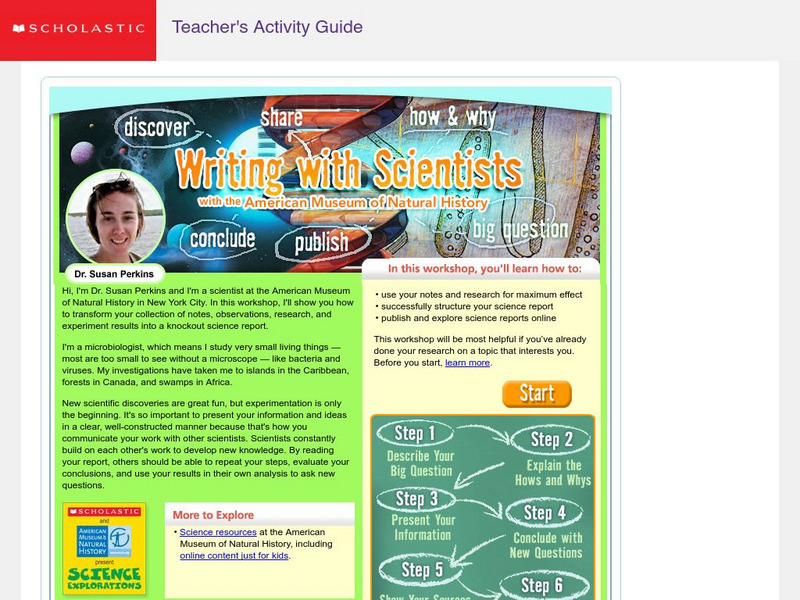


![Curriculum Associates: Determining Theme or Central Idea [Pdf] Lesson Plan Curriculum Associates: Determining Theme or Central Idea [Pdf] Lesson Plan](https://static.lp.lexp.cloud/images/attachment_defaults/resource/large/FPO-knovation.png)
